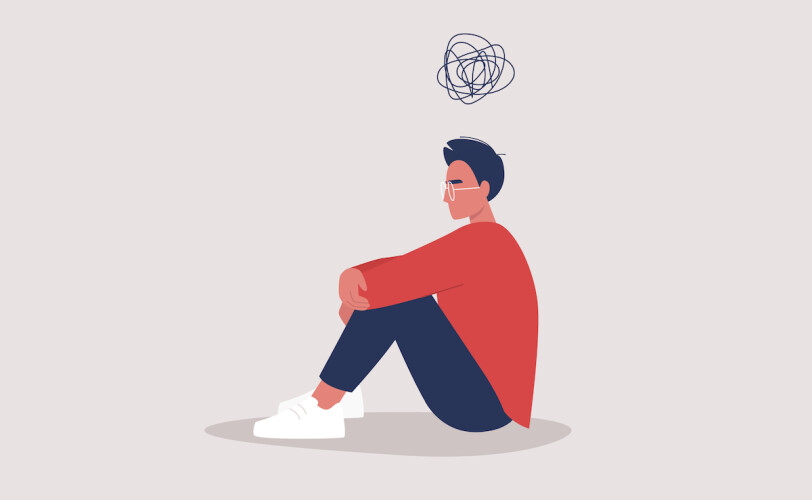How do we acknowledge and deal with dark thoughts?
Some years ago, Tim Minchin – comedian, actor, composer, writer – made a very astute and really rather awful comment while hosting a musicals prom at the Albert Hall. “Why is it,” he asked, when reflecting on how peaceful his son looked while sleeping, “that children seem to be their most perfect only when they are closest to death?”

He was saying something similar to that which more often gets dressed up in culturally acceptable language like “I could have killed him” or “I wanted to murder her” when children push parents to their limits.
Yet, at the heart of these throwaway comments, lies a truth that an inspiring psychotherapist called Donald Winnicott recognised when he suggested, in so many words, that for parents to really be able to love their children, they first need to be able to accept that, sometimes, they’ll hate them. “A mother has to be able to tolerate hating her baby without doing anything about it”, he wrote. (Winnicott DW, 1947, Hate in the Countertransference).
By "hate", I think he meant to recognise honestly the extremity of emotion that children can push their parents to. The feelings that are ignited when, for instance, they find themselves, yet again, in the small dark hours trying to console a screaming baby that won’t be settled. Or the fury that erupts when stretching teenagers push boundaries that respect and courtesy ought to protect. Children trigger these instincts in their parents, and though acting them out is rightly tabooed, to deny the flame that gets fired within is counterproductive and, as Winnicott might say, a block to the free flow of love that children need. Stifle one emotion and others get stunted, too.
The importance of recognising our thoughts
The simple truth is that, from time to time, we all have dark thoughts and we all have a variety of, sometimes, quite difficult and perhaps disturbing emotions. But the suggestion is that all feelings are normal, even the most shocking and frightening ones.
The trick is to know what to do with them, with the warning that doing nothing, denying that they exist, or being reluctant to acknowledge or accept them, not only can cause problems and store up trouble for the future, but can also deny us something that is central to who we are and what it is to be human.
The old wisdom is often the wisest: honesty really is the best policy.
That giant of the psychotherapy world, Carl Jung, suggested that we all have aspects of ourselves that remain hidden from our awareness. He called it a “shadow” and that, a bit like the dark side of the moon (always there but never seen by observers on Earth) it was an out-of-sight but forever present part of who we are.
This shadowy – unconscious – space is often where we try to hide the bits about us that we don’t like, though it's not just our failings and frailties that can get stuck there. Sometimes, our abilities and attributes get trapped on the dark side where we’re unable to appreciate and use them.
I think that both Winnicott and Jung would suggest that putting a cork in it might work for a while but, in the end, allowing ourselves to explore the powerful, scary and sometimes even distasteful bits of ourselves is how we help them to become not just more bearable but also, in time perhaps, beneficial.
Take anger, for instance. Bottled up and sat upon it can distort and destroy us, leaving us no one to attack but ourselves in bouts of depression and self-recrimination, but vented – released – it lets off steam, discharging pressure, to become the most wonderful creative energy for good in ourselves and in others. Nuclear reactions can go horribly wrong, causing terrifying destruction, but, when harnessed, they can be an amazing source of clean, endless energy.
Sometimes it can be hard to recognise what we really feel about people in our lives, especially if those feelings are complicated by negativity of some kind. A sense of loyalty, fear about the frailty of others, or simply a sheer terror of where our emotions might take us if we really take the breaks off, can pull our punches and keep us dutiful rather than honest.
But the old wisdom is often the wisest: honesty really is the best policy.

Find the right counsellor or therapist for you
All therapists are verified professionals
